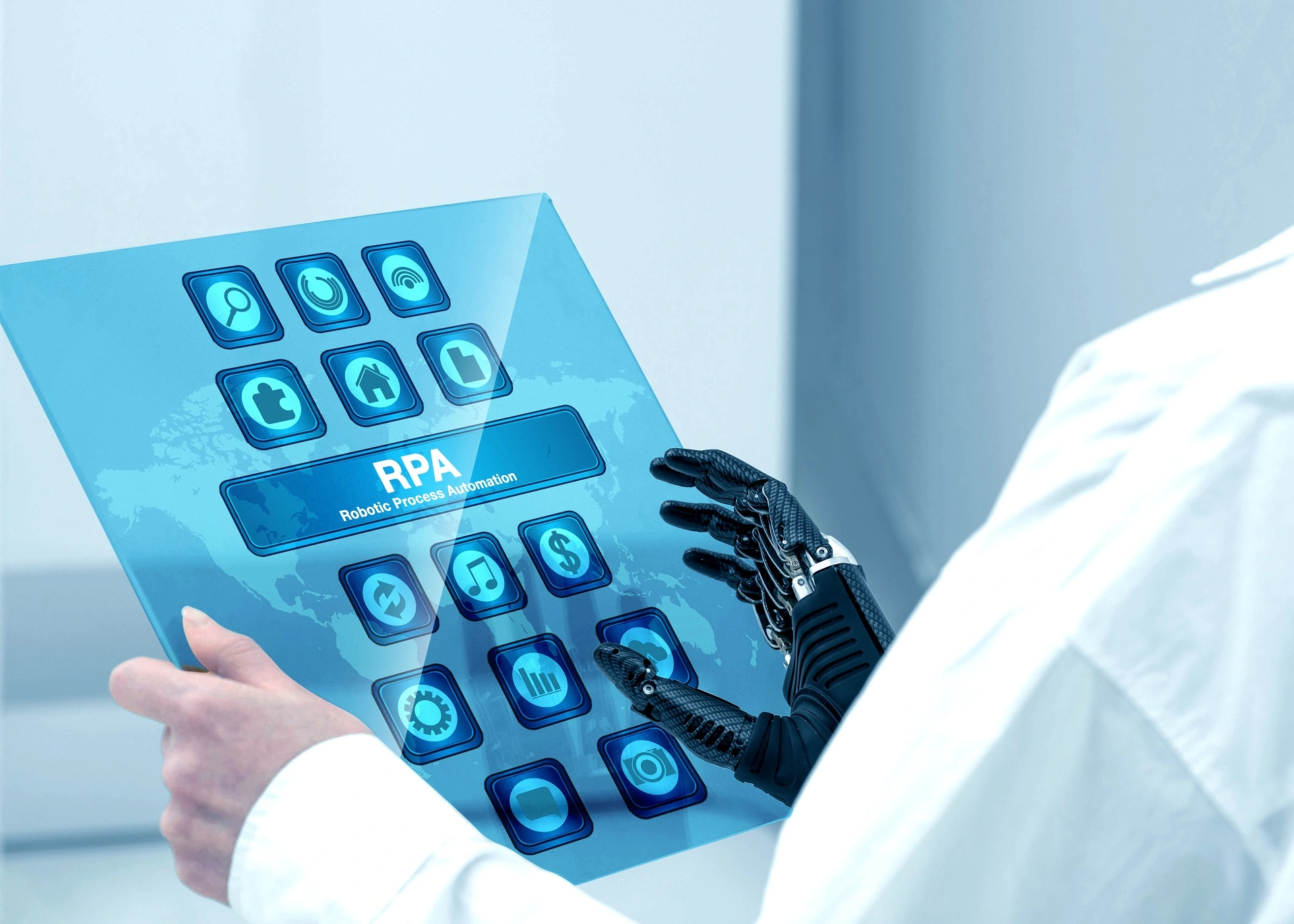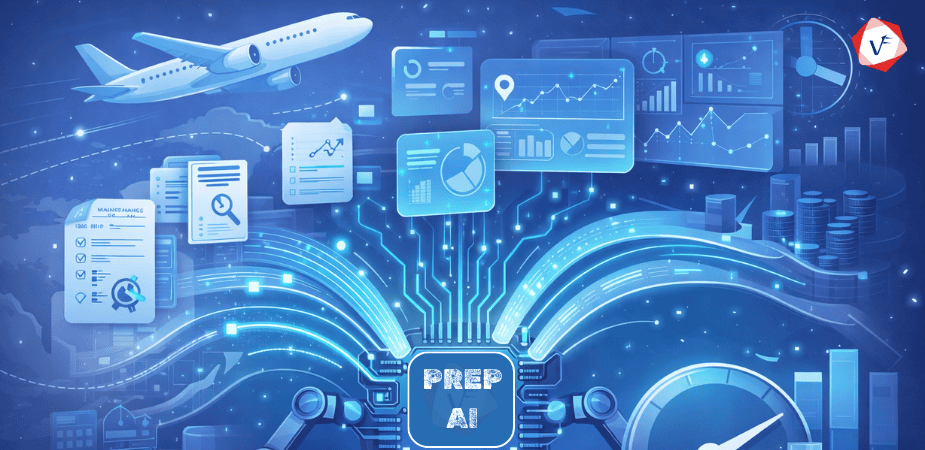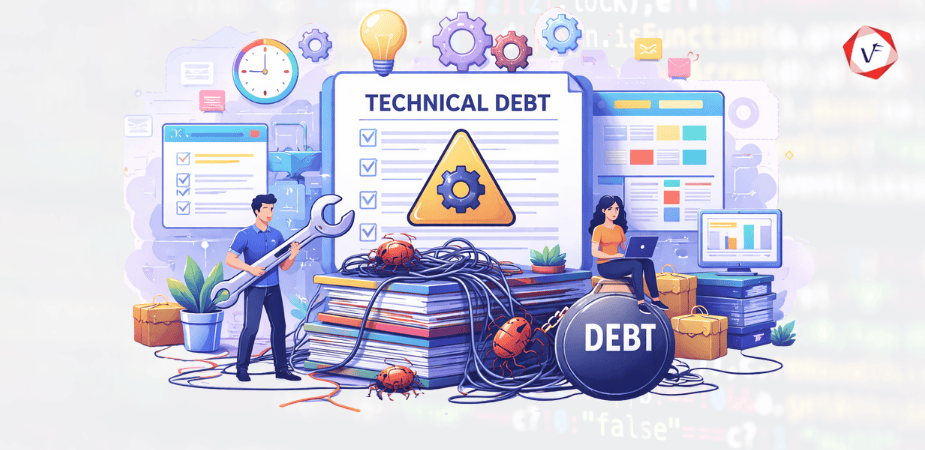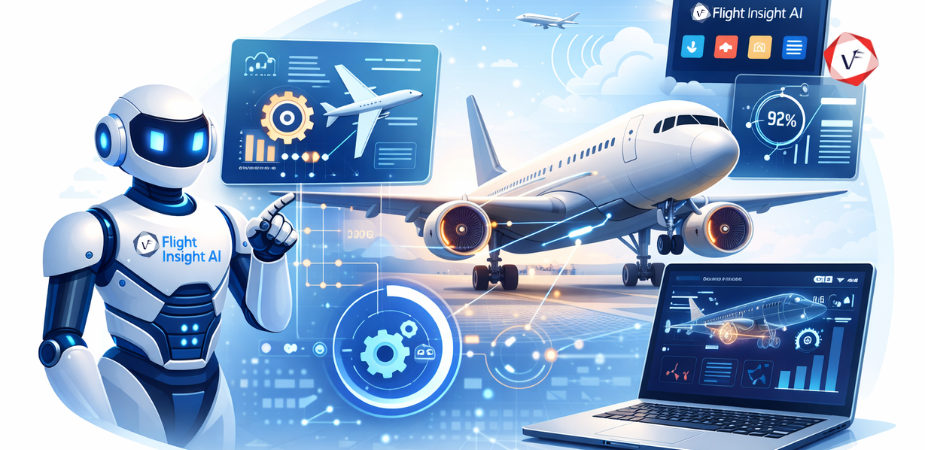What Is Robotic Process Automation (RPA)?
In simple words, Robotic Process Automation(RPA) is a software technology where robots are programmed to do basic & repetitive manual tasks. RPA robots are more similar to virtual assistants that let you delegate easy but time-consuming tasks, allowing employees to be more innovative and productive. With its smart and cost-effective strategy, RPA plays a significant role in taking the business to the next level. Business operations have been transformed through robotic process automation. RPA relieves employees of the burden of regular duties, allowing them to focus on more important and satisfying work where they can use their technical and creative talents. RPA solutions are becoming more popular since they maximize profits for your business and provide a quick return on investment. RPA is part of intelligent automation, which firmly establishes your company’s development. Let’s dive into the ultimate guide to Robotic Process Automation(RPA) for in-depth knowledge & its benefits.
What Are The Different Types Of RPA?
1. Attended Automation
With the aim of increasing productivity, RPA bots act as virtual assistants for each employee. It collaborates with employees and teams to help with front-office duties. Employees can initiate the activation of attended RPA bots anytime they are required to speed up the process. Attended bots can operate on workstations, private servers, or in the cloud.
- Boosts productivity
- Improves customer experience
- Cuts average call handling time
- Ensures compliance
This particular form of bot runs on the user’s browser and is typically activated by the user. The tasks that are triggered at hard-to-detect programming stages are best suited for attended automation. RPA bots can function in a similar manner to a representative, carry out the necessary tasks, and if necessary, seek the representative for help. Attended automation can be used to support manual chores that need to be done by personnel that interact with consumers. When a process cannot be fully automated, attended bots often work alongside humans to provide specific portions of it. They serve as human “virtual assistants” and increase front-office productivity through attended automation. In a straightforward process, a team member initiates or activates a bot, and it immediately starts to help while the employee converses with it. These attended bots can be used to shorten the average call handling time, improve the customer experience, and boost compliance.
2. Unattended Automation
Unattended RPA bots operate automation that functions independently. End-to-end automation, in which bots may run whole processes on their own, is the goal for many corporate operations. Unattended RPA bots run in accordance with a predetermined schedule or when required by the logic of the process flow. automates large-scale back-office procedures. Unattended RPA bots operate independently while carrying out a procedure that is based on rules. Unattended bots can operate on desktop computers, private servers, or the cloud.
- Lowers operational expenses
- Increases output
- Minimizes mistakes
- Relieves workers of tedious tasks and boosts compliance
3. Hybrid RPA
This kind of RPA combines attended and unattended RPA processes to enable automation for back and front-office tasks. This enables process automation from start to end. It’s easiest to view this as a repeated operation carried out by a human worker and an automation technology. This mixed method is chosen in workplaces where unattended automation is too challenging to deploy because the process requires some level of human involvement and is too labor-intensive for attended automation due to the sheer volume of the operation. By combining human creativity and decision-making skills with the effectiveness of automation techniques, hybrid automation enhances the quality of work. This is how human input into automation results in more creative solutions and opens the door for thoughtful strategic choices. Front-end and back-end duties can both be handled by hybrid automation technologies.
How Is RPA Different From Traditional Automation?
- In the case of traditional automation systems, it carries out the established directives when providing the data. RPA, on the other hand, uses bots to do tasks by mimicking human behavior. RPA doesn’t necessitate changing the infrastructure or systems that are already in place. It demands some modifications to the existing IT system.
- RPA enables quick and simple implementation. As RPA software is process-driven, it takes less time. Implementation of traditional automation can take a long time. It takes more time to design tests and conduct feasibility studies.
- RPA can be somewhat pricey in the beginning. However, in the long run, it saves a lot more time, money, and effort. In the beginning, traditional automation is less expensive. But in the long term, it ends up costing far more.
- Users can easily update any business flow with RPA because of its simplicity. Traditional Automation, on the other hand, could compel users to modify multiple procedures. As a result, maintaining and updating this technology might take a lot of work.
- Traditional automation occasionally involves the use of physical machines to do parallel or concurrent activities. Whereas, RPA can assist you in delegating work to hundreds of virtual bots that can carry out the duties in the virtual environment.
Top Use Cases Of RPA Implementation
- Data updates and Data validation
- Website scraping
- Data migration and entry
- Customer order processing
- Generating mass emails
- Answering FAQs
- Automated testing
- Expense management
- Call center operations
- System access and setup
- Data cleansing
Benefits Of Using RPA For Your Business.
-
Better Productivity
Robotic process automation lowers operational risks by reducing errors made by workers doing routine operations. With RPA on your side, you can expand your virtual workforce without difficulty and reduce error-prone human operations.
-
Increased Efficiency
As humans can only work for a certain amount of time and have limited working abilities, their efficiency is somewhat constrained. The advantages of RPA, on the other hand, are unrestricted because you may access it whenever you choose, day or night, throughout the year, and without the need for breaks, sick days, or holidays.
-
Increased ROI
Once your robotic workforce is operational, you will start to see a faster return on investment, and running expenses will often decline swiftly. With RPA, you’ll start to notice ROI in weeks rather than waiting months or years for some IT investments.
-
Improved Accuracy
When it comes to business, even minor errors can end up costing a lot of money. Furthermore, manually fixing defects can be time-consuming and complex. However, by implementing RPA, your company may significantly lower the likelihood of errors.
-
Improve Analytics
Utilizing RPA technologies enables businesses to compile analytically useful data on task execution. Among these are variations in work volume, cycle times, mistakes, and exceptions. Perceptions obtained from such analysis can be useful in a number of ways, including assisting initiatives for process improvement. The business can also identify areas where its procedures could be further simplified to increase efficiency.
-
Enhance Customer Service
Today’s businesses generally struggle to satisfy the incredibly diverse client demands. However, in a corporation that has embraced RPA, normal, boring, and repetitive activities are given to the robots, allowing the employees to focus more on providing excellent customer service. Businesses can meet the needs of customers with the help of experienced and competent employees.
- Intelligent Automation
Enterprises are now accustomed to the technical idea of automation, with many automating repetitive, manual processes to increase productivity. Intelligent automation is a powerful approach for the digital transformation of operational business processes through a blend of advanced technologies. It is intended to minimize the amount of manual work required to complete countless tasks by using methodologies like robotic process automation (RPA), artificial intelligence (AI), and process orchestration. Businesses could benefit from implementing intelligent automation, especially in procedures where data needs to be handled, transferred across departments, or delivered to a customer. These activities would take significantly more time and be more error-prone without intelligent automation. Intelligent automation helps businesses to focus on high-margin components of their services. It motivates businesses to study emerging market possibilities, resulting in extensive modifications to the existing company models.
What RPA Services Can Vofox Provide You With?
It might be time to introduce robotic process automation into your company if you are currently dealing with time-consuming, repetitive manual processes that are reducing efficiency. In all of our work, Vofox uses the most recent technologies and processes. We can assist you in developing an RPA solution that meets your needs as a business and supports your progress. Our RPA-based smart bots and virtual assistants make sure that your business reduces time consumption while also increasing customer satisfaction. With the aid of robotic process automation, Vofox helps clients continuously adapt to the rapidly changing digital environment and handle the issues it poses. We make it possible for you to easily adapt to RPA Services, from transforming unstructured inputs to structured inputs to reading from a database. We deal with the RPA technology deployment, execution, and scaling, ensuring that the specialized software robots have the necessary skill sets to execute flawlessly. Vofox enables you to reach a new scale and scope.
For Queries related to the implementation of RPA services for your business anywhere in the USA, give us a call at +1-408-477-1772
Final Thoughts
To sum up, we have gone through the ultimate guide for RPA through this blog. RPA has undoubtedly transformed business operations and processes. Companies are able to significantly increase their productivity and effectiveness with the use of RPA. It offers a noteworthy shift in how firms operate that can aid them in optimizing and accelerating processes by making jobs simpler and quicker. Now is the ideal time to advance your company and take advantage of modern technology’s benefits.





